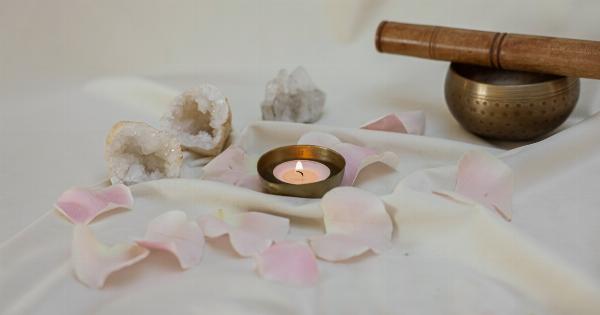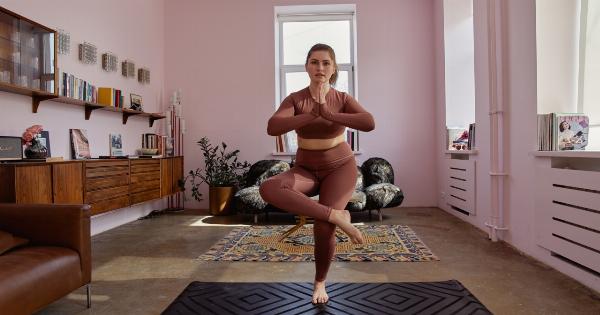In today’s fast-paced world, it is easy to feel overwhelmed and stressed out. The constant pressure of work, relationships, and other commitments can take a toll on your mental health.
However, there are simple techniques that you can use to calm your mind and feel more at peace. In this article, we will explore some of these techniques and how you can incorporate them into your daily routine.
1. Deep Breathing
Deep breathing is a simple, yet effective technique that can help calm your mind and reduce stress. Find a quiet, comfortable place to sit or lie down. Close your eyes and take a deep breath in through your nose, counting to four.
Hold your breath for a count of four, then slowly exhale through your mouth, counting to four. Repeat this cycle several times until you feel more relaxed.
2. Mindfulness Meditation
Mindfulness meditation is a form of meditation that involves paying attention to the present moment without judgment. To practice mindfulness meditation, find a quiet, comfortable place to sit. Close your eyes and focus on your breath.
Notice the sensation of the air entering and leaving your body. When your mind wanders, gently bring it back to your breath. Practice this for at least 10 minutes every day.
3. Progressive Muscle Relaxation
Progressive muscle relaxation is a technique that involves tensing and relaxing different muscle groups in your body. To practice progressive muscle relaxation, lie down in a quiet place and close your eyes.
Starting with your toes, tense the muscles in your feet and hold for a few seconds, then release. Work your way up through your body, tensing and releasing each muscle group, until you reach your head and face. This technique can help release tension and promote relaxation.
4. Visualization
Visualization is a technique that involves imagining a peaceful scene or situation. To practice visualization, find a quiet place to sit or lie down. Close your eyes and imagine yourself in a tranquil setting, such as a beach or forest.
Visualize yourself feeling calm and relaxed in this setting. Stay in this visualization for as long as you like, then slowly open your eyes.
5. Yoga
Yoga is a form of exercise that can help calm your mind and reduce stress. There are many different types of yoga, but most involve a combination of physical postures, breathing techniques, and meditation.
To practice yoga, find a quiet place to practice, such as a yoga studio or your home. Choose a yoga routine that matches your experience level, and practice for at least 20 minutes per day.
6. Tai Chi
Tai chi is a form of martial art that can also help calm your mind and reduce stress. Tai chi involves slow, deliberate movements that promote relaxation and balance. To practice tai chi, find a class in your area or follow a tai chi video online.
Practice for at least 20 minutes per day to see the benefits.
7. Journaling
Journaling is a simple yet effective technique that can help you process your thoughts and emotions. To practice journaling, find a quiet place to write, such as a journal or computer. Write down your thoughts and feelings as they come to you.
You do not need to worry about grammar or punctuation. Simply write down what is on your mind. This technique can help you release tension and feel more at peace.
8. Spending Time in Nature
Spending time in nature can be a powerful way to calm your mind and reduce stress. Simply being outdoors and surrounded by the beauty of nature can help you feel more relaxed and grounded. Choose a nearby park or forest and take a walk or sit quietly.
Take in the sights, smells, and sounds of nature and feel your stress melt away.
9. Listening to Music
Listening to music can be a simple and enjoyable way to calm your mind and reduce stress. Choose soothing music, such as classical or instrumental, and listen to it with headphones or in a quiet place.
Focus on the music and let it take your mind off your worries.
10. Gratitude Practice
Practicing gratitude can be a powerful way to shift your focus from stress to positivity. To practice gratitude, make a list of things you are grateful for each day, such as your health, relationships, or a beautiful sunset.
This simple practice can help you feel more content and at peace.





























